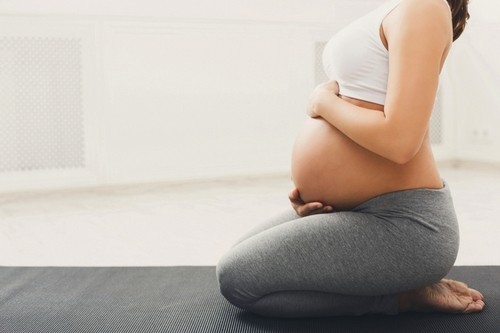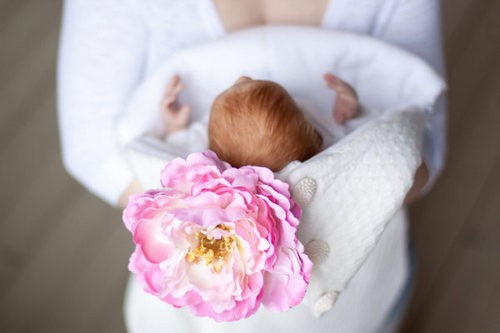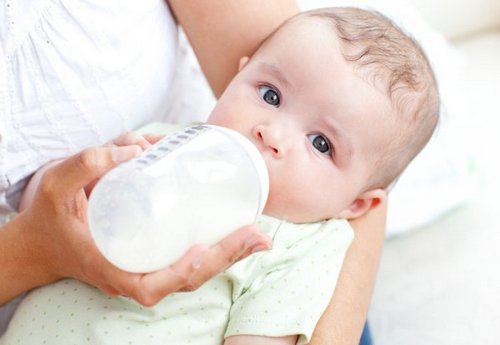Pregnancy is a great time in a woman’s life. However, the joy of expectation may be overshadowed by some features of the body. Of particular discomfort is urinary incontinence during pregnancy. It occurs in every third expectant mother.
This condition causes anxiety and causes tangible inconvenience. However, it is not a pathology and does not require medical intervention. The exceptions are situations where the problem is provoked by viruses or inflammatory processes.
Pregnant urinary incontinence is a common occurrence that does not require medical treatment. Why does this problem arise and how to deal with it at different periods of bearing a child.
Droplets of urine can stand out regardless of the woman’s desire. Unpleasant phenomenon often occurs during the time of laughter, trying to lift a weight or sneezing. Sometimes a couple of drops are released when a woman is in a calm state. What is the reason for this phenomenon and do I need to turn to professionals for help?
About urinary incontinence in pregnant women
During gestation, the woman’s body undergoes serious changes. Some of them can provoke corresponding difficulties:
| Problem | Cause |
| Hormone balance changes | In normal condition, urine pressure during pregnancy in the bladder is lower than in the urethra. Thanks to this, the liquid remains locked and the woman can independently control her urge. Along with a change in hormone levels, pelvic muscle relaxes. The position of the urethra and bladder changes. As a result, the pressure in the organs shifts and incontinence occurs. |
| Enlarged uterus | Constant growth of the uterus also causes urinary incontinence. The organ begins to press on the bladder, causing a desire to empty it. The longer the gestation period, the more pronounced the problem. In the later stages, it leads to serious embarrassment. |
| Baby stirring | A growing baby is actively moving in the uterus. His strokes in the genitourinary area cause not only pain, but also attacks of incontinence. In this case, leakage can occur even after complete emptying of the bladder. |
The main provoking factors of urinary incontinence during pregnancy are:
- frequent childbirth and pregnancy after a short period of time – while the woman’s body does not have time to recover. The fragile ligaments can not cope with the load, which leads to the formation of the problem;
- the presence of excess weight. Urinary incontinence is most often diagnosed in expectant mothers gained during pregnancy, too much extra weight. In order to avoid problems, it is important to monitor the diet;
- tendency to constipation – the stool accumulated in the intestine presses on the bladder. In this case, a small amount of urine is released.

To understand the exact cause of urine leakage, you can visit a gynecologist. The doctor will help you find a solution to the problem and tell you how to avoid trouble in the future. It is important to understand that you should not be shy of this feature.
2-trimester incontinence
During pregnancy, many women experience incontinence in the second trimester. At this time, the fetus grows actively, begins to move, and the pressure on the bladder increases many times.
To solve the problem on these dates, doctors recommend resorting to the following tips:
- wear a special bandage – it will help to keep the muscles in the right position, relieve tone and pressure on the pelvic organs. Excessive load on the bladder will decrease, and the woman will become much easier. However, to obtain the effect, it is necessary to choose a high-quality bandage;
- regularly go to the toilet, you can not restrain even the most insignificant urges. In addition, you should avoid those places where there are no public restrooms. When urinating, you need to take the correct pose. To do this, you need to slightly tilt the body forward and strain the lower abdomen. This position will allow you to fully open the urethra and empty the bladder;
- observe the rules of personal hygiene – during the second trimester it is worth abandoning synthetic and coarse fabrics. It is necessary to wash daily using decoctions of herbs. To use soap or other means is 1-2 times a day. Otherwise, this approach to hygiene will lead to a violation of the vaginal microflora;
- compliance with the drinking regimen will avoid not only incontinence, but also edema. It is recommended to drink no more than two liters of liquid per day. At the same time, it is worth completely abandoning coffee and sparkling waters. It is also necessary to consider the amount of liquid contained in the first courses;
- an exception to the diet of diuretic products – you should limit the use of certain vegetables and fruits. So, melon, watermelon, tomatoes, cucumbers and celery have a pronounced diuretic effect. It is not necessary to completely exclude them from food, as they are rich in useful trace elements and vitamins.
In the second trimester, you can do Kegel exercises. However, they must be carried out with extreme caution. Excessive tension of the muscles of the vagina can provoke false contractions, so you need to consult a gynecologist before training.
Late Pregnancy Incontinence
Unexpected urge to the toilet often ends in incontinence. Many women complain that they simply do not have time to get to the toilet. As at earlier dates, treatment in this case is not required. Nevertheless, it is important to make sure that urine is really leaking, not amniotic fluid.
The fact is that urine, like water, can be excreted in very small quantities, which leads the woman into confusion. The first condition is natural and does not cause any concern. However, water leakage poses a direct threat to both the mother and the baby. What to do and how to distinguish these two states from each other?
The main characteristics in this case can be called:
- smell. Urine has a characteristic, pronounced odor. Amniotic fluid does not smell at all;
- Colour. Water is a clear liquid if there are no pathologies. Urine has a characteristic yellowish color and leaves spots on light linen;
- quantity. If a woman leaks water, then this phenomenon can last a long time. Urine most often leaks under certain circumstances, such as laughing or exhilarating.
If you encounter such a problem, consult a gynecologist. First of all, you need to make sure that the problem is not caused by pathologies. If no diseases are found, then you have no cause for concern.
Sneezing Incontinence
Involuntary urine release during sneezing, coughing or any other kind of tension is a common occurrence in pregnant women. This is due to excessive tension of the abdomen and increased pressure on the bladder. In this case, a small amount of urine may be released. However, with a weakened bubble, its amount may increase.
No specific treatment is required. This is a natural problem during pregnancy.
The following tips will help correct the situation:
- the use of gaskets. They are necessary to absorb excess moisture. In addition, the pads will save you from unpleasant odors. However, they need to be changed every 3-4 hours, depending on the severity of incontinence;
- Kegel exercises. They can be performed in the early stages. First you need to consult with a gynecologist. It eliminates the risk of contraindications. Regular exercises will strengthen the muscles of the pelvic floor and prepare the body for the upcoming birth;
- Wearing comfortable underwear – too tight underwear can provoke the discharge of urine. It is necessary to choose linen without tight elastic bands and from natural materials.
If you are not sure why urine is leaking, visit a gynecologist. The doctor will perform the necessary examination and eliminate the risk of pathology. Do not worry about the fact that unpleasant symptoms will remain after childbirth. As soon as the muscles of the bladder get stronger, the situation normalizes.



